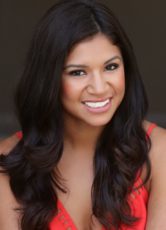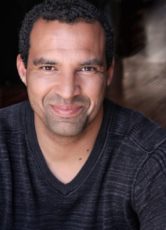15 Actors’ Thoughts on Method Acting
July 28, 2022
Everyone’s heard of the in-depth and exhaustive lengths some actors go to in order to prepare for their roles, especially when it comes to method acting.
And although there are plenty of non-method actors, the list of actors who use method acting is legendary. Take, for example, the time method actor Dustin Hoffman stayed up a few nights in a row during the making of the 1976 film Marathon Man supposedly to commit to his character’s emotional verisimilitude; his costar Laurence Olivier observed this self-imposed suffering and responded, “My dear boy, why don’t you just try acting?”
Hoffman later shared he’d actually stayed awake so long due to personal problems coupled with excessive partying, but the truth still holds: many of the most celebrated actors in cinematic history have been trained in the techniques we’ve come to know as “method acting.”
What is Method Acting?
Method acting, in a nutshell, is the procedure of internalizing the process of acting. The technique is based on Russian theater practitioner Konstantin Stanislavski’s system or, method, where actors internalize the inner lives, motivations and emotional states of their characters – even drawing from personal experiences to bolster their execution. Through this type of preparation and rehearsal, actors can create an emotionally expressive and authentic performance.
Stanislavski thought deeply about his performances and characters, and his method spread globally, being re-interpreted, and expanded upon over the years. The most famous teachers being American theatre practitioners Lee Strasberg, Stella Adler, and Sanford Meisner. And although each of them highlighted different elements of Stanislavski’s approach to craft their own acting methods, his technique became one of the top methods of acting.
What the Pros Say
Marlon Brando, Paul Newman, Al Pacino, Marilyn Monroe, Jack Nicholson, and Mickey Rourke are among the many method actors in Hollywood. That’s not to say that method acting is the only one (some actors hate method acting while others swear by it). There are several other acting methods you can choose to employ. Here are various actors’ thoughts about the method as well as some of their experiences – from actors who use the Stanislavski method, and actors who don’t.
Charlize Theron: “I can’t do the method thing. I did it once, for ‘Devil’s Advocate,’ and I was just exhausted. It was really hard to go to those deep, dark places because I was so tired. It was good for me to figure this out, and I am much better now at understanding and living and breathing in the moment with the character.”
Nicolas Cage: “There’s a fine line between the method actor and the schizophrenic.”
Michael Keaton: “I guess I’m probably a method actor; I don’t know … I just think of it as staying in the zone.”
Tyrese Gibson: “James Franco is a method actor. I respect method actors, but he never snapped out of character. Whenever we’d have to get in the ring for boxing scenes, and even during practice, the dude was full-on hitting me.”
Dennis Hopper: “In method acting, you can’t have preconceived ideas. You have to live in the moment. You have to keep yourself open.”
George Clooney: “I’m a method actor. I spent years training for the drinking and carousing I had to do in this film.”
Shirley Temple: “I guess I was an early method actress. I would go to a quiet part of the sound stage with my mother. I wouldn’t think of anything sad, I would just make my mind blank. In a minute, I could cry.”
John Malkovich: “I’m not a method actor. I don’t believe acting should be psychodrama. I look within myself and see what I can find to play the role with. If I’m playing a blind man, I don’t go around blindfolded for days. A lot of good actors would, but I don’t go in for that very much. I like to just make it up as I go along.”
Academy Award-winning French actress Marion Cotillard: “I’m not a method actor, but I’m affected by the life I share my life with during shooting. It’s always a very strange and special period for me.”
Ashley Rickards: “I’m sort of a reverse method actor. In my personal life, I become my characters. After ‘One Tree Hill,’ I started dressing in Converse and ripped jeans and hoodies. On ‘Awkward,’ it manifests in how I speak.”
Tom Felton who played Draco Malfoy in the Harry Potter series: “I remember my first scene with Alan Rickman, and I was anxious because he is a slight method actor; as soon as he is in his cloak, he walks and talks like Snape—it’s quite terrifying.”
Jeremy Irons: “I wouldn’t call myself a method actor, but I have my own method. I do my own research. I come up with a background for the character. I’m not a club man. I don’t like isms. I’ve never really studied Stanislavski.”
Claire Danes: “If I took my characters home with me, half of my life would be a misery, I think. No, I tend to compartmentalize work from my life. I’m not terribly method.”
Al Pacino: “The actor becomes an emotional athlete. The process is painful – my personal life suffers.”
Jack Nicholson: “The idea is to get the physical body, the emotional body and the mental body into neutral. Then you should be able to hear through the voice what’s actually happening inside.”
If you want to know more about method acting, we suggest you check out some local acting schools that employ this technique and start your acting career today! And if you yourself are a method actor, take a look at some casting calls available on Casting Frontier and start auditioning now!
What are your thoughts and experiences with the method? Please share!
Related articles
Did Dustin Hoffman Go Too Far with Method Acting in ‘Kramer vs. Kramer’?
Acting Coach Bernard Hiller on Four Elements Every Actor Should Know
The Mysterious Process of Acting
Hollywood Greats Discuss Misconceptions about Acting
The Technique of Acting
Did Dustin Hoffman Go Too Far with Method Acting in ‘Kramer vs. Kramer’?
April 14, 2023
The set of Kramer vs. Kramer could have been described as Dustin Hoffman vs. Meryl Streep according to Michael Schulman’s 2016 cover story for Vanity Fair. Schulman wrote the legendary actresses biography entitled Her Again: Becoming Meryl Streep, as well as an adaptation for the magazine revealing the strained relationship between the then 29-year-old Streep and her costar, Hoffman, in what would go on to be a multi-Oscar winning film in 1980.
The movie’s focus is a divorcing couple and the ensuing custody battle over their son Billy. Hoffman was set to portray the husband, Ted Kramer, and casting decisions were being made as to who would play his wife, Joanna. When Streep became an option, she was grieving because she had just lost her boyfriend of two years, John Cazale, to lung cancer. Being a dedicated Method actor, Hoffman felt certain that Streep was indeed the best fit for Joanna. According to Schulman, Dustin saw her as “still shaken to the core” and felt she could “draw on a still-fresh pain.” The film’s director, Robert Benton, also recognized Streep to be Joanna because of a “fragile quality.”
Schulman describes on the second day of shooting the film’s opening scene–where Joanna is trying to walk out on Ted–Hoffman “shocked” Meryl, the cast and crew.
“Right before their entrance, Dustin slapped her hard across the cheek, leaving a red mark. Benton heard the slap and saw Meryl charge into the hallway. We’re dead, he thought. The picture’s dead. She’s going to bring us up with the Screen Actors Guild. Instead, Meryl went on and acted the scene. Clutching Joanna’s trench coat, she pleaded with Ted, ‘Don’t make me go in there!’ As far as she was concerned, she could conjure Joanna’s distress without taking a smack to the face, but Dustin had taken extra measures. And he wasn’t done.”
Schulman goes on to say that as cameras were set to cover Joanna entering an elevator in the subsequent scene, which was just as emotionally charged, an off-screen Dustin resorted to hurling personal attacks at Meryl.
“Improvising his lines, Dustin delivered a slap of a different sort: outside the elevator, he started taunting Meryl about John Cazale, jabbing her with remarks about his cancer and his death.” Apparently, Hoffman was using Method techniques attempting to increase the intensity of her performance. At the end of the day’s shoot, Meryl left furious.
As the days on set continued, Hoffman is said to have been “driving everyone nuts. In his effort to fill every screen moment with tension, he would locate the particular vulnerability of his scene partner and exploit it.” His emotional attacks on his other cast members included young Justin Henry (who was playing Billy); attempting to make him cry for a scene, Dustin informed him that he may not see fellow members of the cast and crew again. This proved effective to the point where Justin couldn’t stop sobbing after the scene was completed.
And Hoffman secretly planned with the cameraman to catch a shot of him abruptly swiping a glass of wine, shattering it on the wall to punctuate his character’s anger. Streep was alarmed, and with shards of glass in her hair told Dustin, “Next time you do that, I’d appreciate you letting me know.”
Both Streep and Hoffman went on to earn their first Oscars for the film.
What do you think? Was Dustin Hoffman’s behavior abusive and unacceptable during the Kramer vs. Kramer filming? Should he have only used emotional recall techniques on himself, or was it worthwhile to target others with it? Do you believe it impacted the intensity of the performances?
Want to get your acting career started? Sign up or login to Casting Frontier and start auditioning today!
Related articles:
Memorable Actor-on-Actor Advice
15 Actors’ Thoughts on Method Acting
6 Actors’ Motivational Quotes




